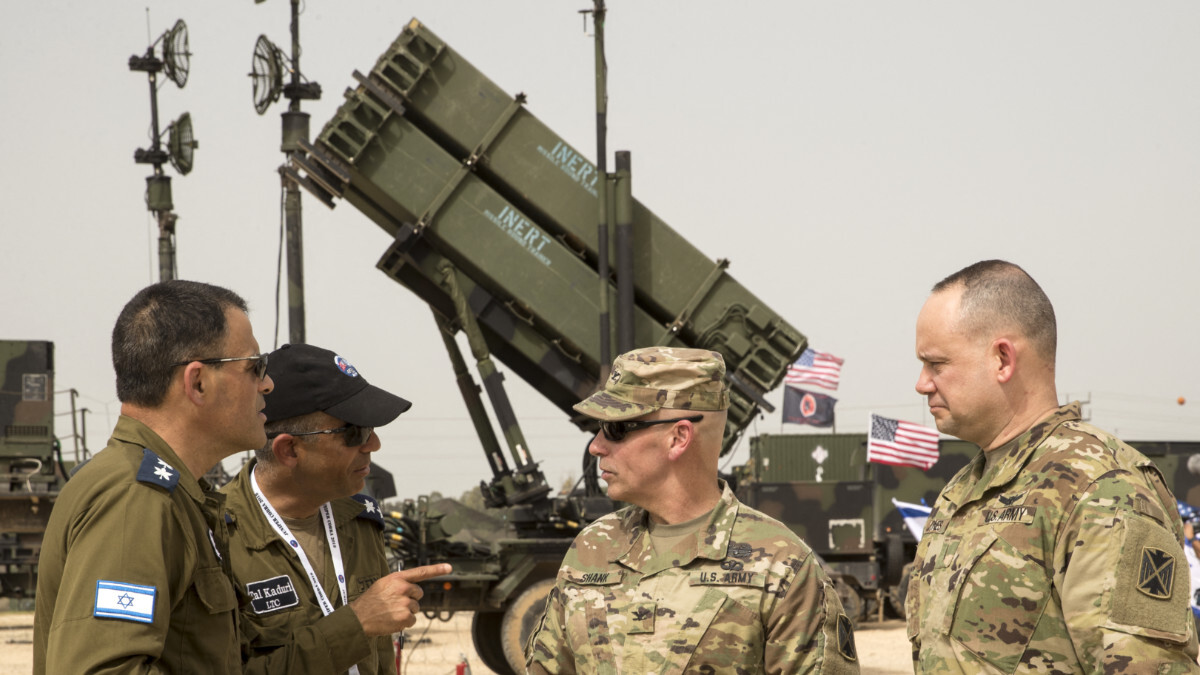A former Pentagon official has said Israel has more than half a dozen retired Patriot missile batteries and hundreds of interceptors in its reserves that could be sent to Ukraine, as the US looks to beef up Kyiv’s air-defences from Russian attacks.
Dan Caldwell, a former senior advisor to US Defence Secretary Pete Hegseth, wrote on X that: “Trump has made clear he wants to provide Ukraine with more air defense assets. With that in mind, I think the best place to get them from with the least amount of trade offs against US and allied readiness is from Israel’s stocks of retired Patriot PAC-2 missiles/batteries.”
“Israel has already provided one Patriot battery and about 90 missiles to the U.S. for refurbishment, which was then reportedly sent on to Ukraine. According to open source data, Israel probably has about eight batteries and several hundred missiles left in storage,” he said.
“Considering the significant amount of THAAD and SM-3/6 interceptors expended in defense of Israel during the 12 day war the U.S. has more than enough standing to ask Israel to send a portion of its retired Patriot stockpile back to the U.S. which can then be provided to Ukraine,” he added.
US President Donald Trump has grown frustrated with his Russian counter-part Vladimir Putin as peace talks stall, saying earlier this week he was full of “bullshit”.
Trump promised to send defensive weapons to Ukraine in a U-turn after the administration had ordered a pause on weapons shipments that included Patriot interceptors. Axios news reported that Trump promised to send 10 interceptors to Ukraine, underscoring how precious a commodity patriots have become.
The war in Ukraine, the US campaign against the Houthis and the Israel-Iran conflict have exhausted the supply of interceptors. Patriot batteries are also in short supply.
Middle East Eye was the first to reveal during the recent Israel-Iran conflict that US officials were concerned about the pace at which they were using interceptors to defend Israel from ballistic missile attacks.
The Guardian later reported that it only has about 25 percent of the Patriot missile interceptors that planners at the Pentagon assess are needed for all the US’s military operations globally. A US official confirmed that classified number to MEE.
During the recent conflict with Iran, the US joined directly in Israel’s defence using Terminal High Altitude Area Defence (Thaad) batteries and guided-missile destroyers firing SM-3/6 ship-based missiles to shoot down Iranian ballistic missiles.
The Trump administration has already pulled at least one older Patriot battery from Israel, a US official told MEE. The US planned to refurbish the system before sending it to Ukraine. It’s unclear if that delivery has taken place.
According to leaked classified documents, Ukraine received the newer Pac-3 interceptors from the US, the Netherlands and Germany in the early years of Russia’s invasion. Israel maintains a stockpile of Pac-2 interceptors, which would also meet Ukraine’s needs and address shortages.
Israel decommissioned its Pac-2 air-defence systems when it developed its three-tiered air defence of the Iron-dome, David’s Sling and Arrow 2 and 3 systems. These systems are co-produced and co-developed with the US.
The US is informed of Israeli supplies and production, but one US official familiar with the programme told MEE that it’s likely Israel does not disclose its entire production capabilities to the US. Israel, like the US and its other partners, has a motivation to keep its stockpile high.
Israel has been reluctant to meet all of Ukraine’s demands for weaponry and ammunition since Russia’s 2022 invasion. One of Israel’s main points was that it could not afford to irk Moscow, which had air defence systems in Syria, but allowed Israeli warplanes freedom of action to bomb Iranian targets. However, Bashar al-Assad, Russia and Iran’s ally, was toppled from power in December 2024.
Russia has also demurred on providing the Islamic Republic of Iran with S-400 air defence systems, instead selling it the S-300, experts say.
“Israel also needs to take into account its own relations with Russia – who so far has held back supplying certain advanced weapons to Iran,” Caldwell said.

